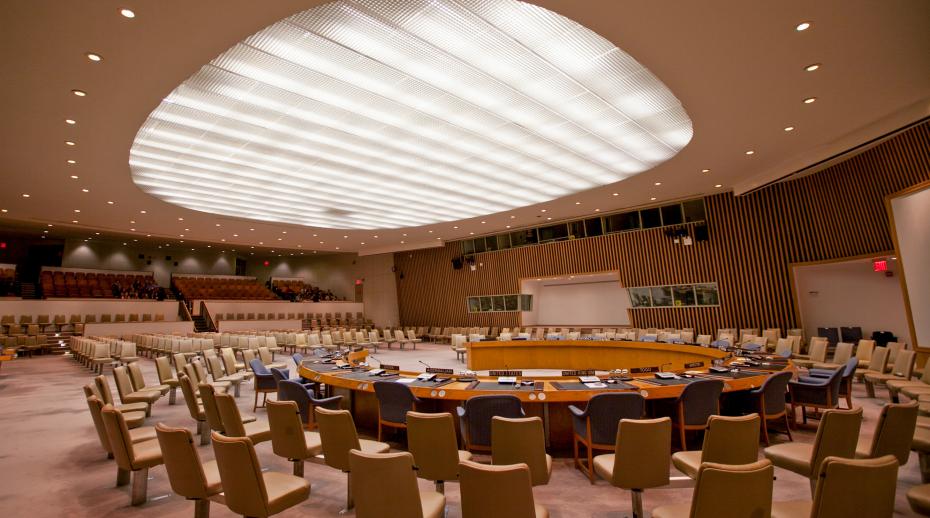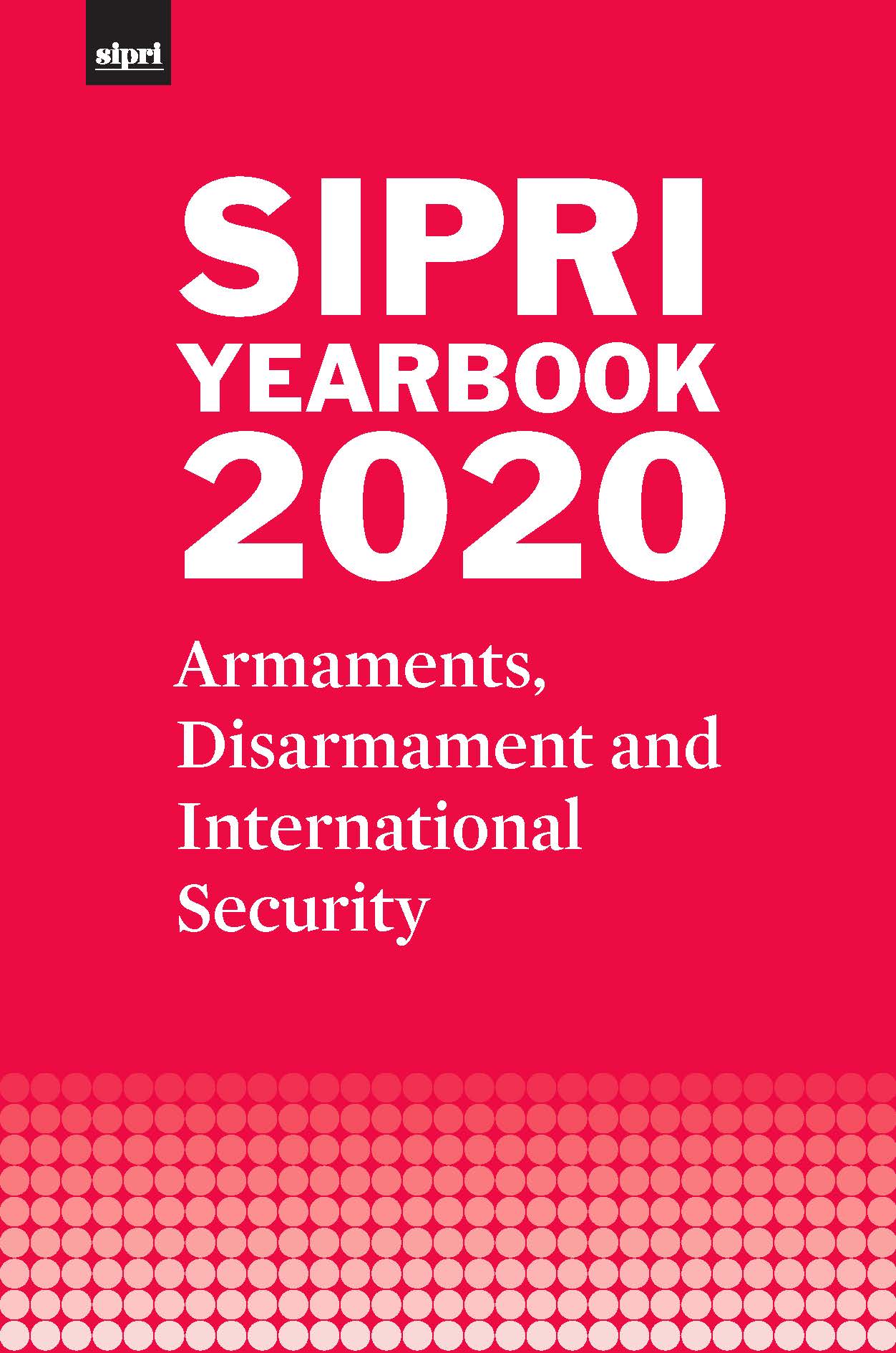|
| NEWS |
 |
| Perceptions on nuclear challenges in South Asia—new video series |
| This month SIPRI launched a new video series on perceptions on nuclear challenges in South Asia featuring experts from India, Pakistan, Russia and the United States. The interviews were conducted as a part of the research project ‘Assessing Nuclear Deterrence Risks and Challenges in South Asia’. The series gives a voice to key players in the field towards a mutual understanding of the complexity of nuclear challenges that are impacting South Asia today. It also aims to identify concrete recommendations on engagement between the countries and transparency and confidence-building measures to address these nuclear risks. |
|
|
Read more | Watch the video series | Read the commentaries
|
|
|
 |
SIPRI and NUPI form cooperation to inform
UN Security Council |
|
SIPRI is pleased to announce a three-year cooperation with the Norwegian Institute of International Affairs (NUPI) funded by the Norwegian Ministry of Foreign Affairs. The aim of the collaboration is to inform the United Nations Security Council about climate-related security and development risks for selected countries and regions on the council’s agenda. SIPRI and NUPI launched a Fact Sheet on climate-related peace and security risks in Somalia ahead of the UN Security Council meeting on the renewal of the mandate for the African Union Mission in Somalia, scheduled for the end of February.
|
|
|
Read more | Download the Fact Sheet | Read more about the project
|
|
|
 |
| SIPRI co-hosts climate-related security risks webinar |
|
On 29 January SIPRI and the International Peace Institute (IPI) hosted a virtual expert-level dialogue with Peacebuilding Commission (PBC) members, focused on exploring the PBC as a forum for discussions on climate-related security risks. The discussions built upon the study ‘The Peacebuilding Commission and Climate-related Security Risks: A More Favourable Political Environment?’ published jointly by SIPRI and IPI in September 2020.
|
|
|
Read more | Read the SIPRI–IPI Insights on Peace and Security
|
|
|
 |
| Learn more about SIPRI’s Environment of Peace initiative |
|
An overview of SIPRI’s Environment of Peace (EP) initiative is now available in six languages: Arabic, Chinese, English, French, Russian and Spanish. The initiative also has also published a new video from Chibesze Ezekiel, the 2020 Goldman Prize recipient and member of the EP international expert panel. In the video, Ezekiel explains the relevance of EP for Ghana as well as his hopes for the initiative.
|
|
|
Read more | Watch the video
|
|
|
 |
| SIPRI briefs UN Security Council representatives on conflict futures |
|
On Friday 19 February, Dan Smith, SIPRI Director; and Renata Dwan, Deputy Director of Chatham House, gave an informal briefing on ‘conflict futures’ to the 15 UN Security Council Permanent and Non-permanent Representatives. The meeting was hosted by the British Mission to the UN in New York.
|
|
|
Read more
|
|
|
|
| COMMENTARY |
 |
| Why United Nations peace operations cannot ignore climate change |
|
The security implications of climate change have particular relevance for the peace operations conducted by the UN. Recent research in highly exposed countries shows that climate change’s impacts on host communities can have serious implications for both UN peacekeeping operations and special political missions. This SIPRI Topical Backgrounder presents the UN Assistance Mission in Somalia as a case in point and lays out a number of suggestions on how the UN Security Council can adapt to climate-related security threats.
|
|
Read the SIPRI Topical Backgrounder
|
|
|
 |
| Overcoming barriers to grassroots inclusion in peace processes |
|
While grassroots participation in peace processes is increasingly recognized as a way of achieving more inclusive and sustainable peace, moving beyond the realm of traditional diplomacy among high-level actors remains a challenge. Community and grassroots organizations often remain at the periphery of peace processes. This can be due to contending priorities among civil society groups, geographical distance from the negotiation table, the language used during negotiations and implicit issues of hierarchy and privilege. Barriers to achieving greater participation from local and community-level actors must be overcome and this SIPRI WritePeace blog illustrates the potential in doing that.
|
|
Read the SIPRI WritePeace Blog
|
|
|
 |
| Reassessing SIPRI’s military expenditure estimate for the United Kingdom |
|
In November 2020, the British Government announced a £16.5 billion budget boost for ‘defence’. The realities of this announcement however remain unclear. The definition of what constitutes the UK’s total military expenditure continues to be probed and it remains opaque why there is a discrepancy between what the British Ministry of Defence (MOD) itself reports as the defence budget and what it reports to the North Atlantic Treaty Organization as ‘defence expenditures’. This SIPRI Topical Backgrounder answers some of the questions that arise from this discrepancy and presents six new categories of military spending for the MOD.
|
|
Read the SIPRI Topical Backgrounder
|
|
|
 |
| USA–India strategic continuity in the Biden administration transition |
|
USA–India relations have once again emerged at the forefront of US security policy. This SIPRI WritePeace Blog explores what is next in the USA–India relationship under President Joe Biden. It reviews agreements between the two states and uses 20 interviews with US military, political, nuclear and South Asia experts to identify obstacles and opportunities to bridge the gap between USA–India security and nuclear engagement.
|
|
Read the SIPRI WritePeace Blog
|
|
|
|
| UPCOMING EVENTS |
| |
| 4–7 May 2021 |
| 2021 Stockholm Forum on Peace and Development |
|
SIPRI is proud to announce that the 2021 Stockholm Forum on Peace and Development will be held on the theme ‘Promoting Peace in the Age of Compound Risk’. The Forum will be held on 4–7 May.
|
|
Read more
|
|
|
| STAFF NEWS |
| Current vacancies |
- Senior Researcher, Climate Change and Risk Programme (Closing date: 7 March).
- Researcher, Climate Change and Risk Programme
(Closing date: 7 March).
|
|
Read more
|
|
|
| PUBLICATIONS |
 |
| Promoting China–European Union Cooperation on Green and Sustainable Finance |
| Energy transition is an essential element of the global effort to meet the objectives set out in the 2016 Paris Agreement on climate change. China and the European Union (EU) have agreed to work together to help deliver the financing needed to achieve energy transition, but more is needed. To promote China–EU co-operation, this SIPRI Policy Brief outlines how China and the EU can scale-up, mobilize and direct the finance needed to transition to low-carbon solutions. |
|
Read the SIPRI Policy Brief
|
|
|
 |
| The European Union Training Mission in the Central African Republic: An Assessment |
| Energy transition is an essential element of the global effort to meet the objectives set out in the 2016 Paris Agreement on climate change. China and the EU have agreed to work together to help deliver the financing needed to achieve energy transition, but more is needed. To promote China–EU co-operation, this SIPRI Policy Brief outlines how China and the EU can scale-up, mobilize and direct the finance needed to transition to low-carbon solutions. |
|
Read the SIPRI Background Paper
|
|
|
 |
| SIPRI Yearbook 2020 |
SIPRI Yearbook 2020 presents a combination of original data in areas such as world military expenditure, international arms transfers, arms production, nuclear forces, armed conflicts and multilateral peace operations with state-of-the-art analysis of important aspects of arms control, peace and international security. It covers developments during 2019, including:
- the state of nuclear arms control;
- transparency in military spending;
- regional overviews of armed conflicts; and
- the investigation of allegations of chemical weapon use in Syria.
|
|
Browse the contents page | Download the summary (PDF) |
Order SIPRI Yearbook 2020
|
|
|
| |